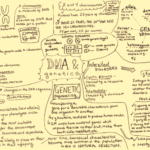The term ‘personalised learning’ comes from the idea that education should be tailored individually, rather than being delivered as a blanket concept. The idea stems from understanding students as individuals, each with very different strengths and weaknesses.
Personalised learning manifests itself in various ways when applied to a classroom setting. From creating bespoke pathways through education to embracing a range of tailored learning techniques in lessons, the application of personalised learning has changed and adapted to student needs over the years.
Today, technology plays an important role. Over the last decade, we have seen major developments in how the use of data can be used to tailor experiences down to the most minute details. When this is applied to education, personalised learning can be delivered like never before.
At Justin Craig, we truly believe in personalised learning. We use tried and tested methods alongside some of the latest trends to provide the best possible outcome for our students.
Where did the Term ‘Personalised Learning’ Come From?
Whilst the personalised learning model has seen a recent resurgence in popularity, the idea itself has been around for many years.
In the mid-1980s a research paper was published by educational psychologist Benjamin Bloom. In it, he outlined the need to challenge teachers and academics to provide an educational experience akin to one-to-one tutoring, but on a much larger scale. His argument was that students who were given personalised instructions were up to 98% more likely to succeed.
Then, in 2004 the Schools Minister David Milliband gave a speech on the ‘future of learning’. In it, he outlined how several schools across the UK had adopted the policy of personalised learning in the classroom, and that he saw it as the future for all schools.
The concept was popular in the early to mid 00s and was adopted pretty much across the board as the new approach to schooling. It proved effective, helping grades increase in the time since.
What Does Personalised Learning Mean in practice?
The conversation around the topic has seen a return to relevance in the late 2010s. The focus, now more than ever, is on the wants and needs of individual students. What are their strengths and weaknesses? How can they get the most out of school? How can they be best supported through the learning process?
Today, in classrooms up and down the country, teachers are able to utilise techniques such as personalised learning plans, goal setting and inquiry/project-based learning. As well as these, technologies like tablets and laptops allow individual learning experiences to be delivered effectively.
When using technology, questions can be asked and tasks can be set, then when students are completing them, different experiences can be given depending on the student’s need. Another added bonus of using tablets for personalised learning is that teachers and classroom assistants can see in real-time who is struggling and who is excelling. This in turn makes it easier for help and support to be given appropriately.
The principle of being able to gather and use feedback works both ways. One of our most valuable assets is the humble questionnaire. We ask all of our students to complete these as it provides excellent insight into what is going well, where extra support is needed and what type of learner the student is.
How Has Justin Craig Embraced Personalised Learning?
At Justin Craig, personalisation is at the heart of everything we do, and has been for many years. Whether students are studying for their GCSEs or A-Levels, a bespoke learning experience is guaranteed. We have embraced the notion of personalised learning since we launched.
Through our online courses, we are able to harness technology that allows our students an excellent learning environment. They are always a part of small classes led by dedicated tutors. Our tutors are then able to tailor elements of each course to the individual.
Our most popular method for delivering our courses is in person at one of our specialist centres. Here, students are also a part of small groups, each with dedicated subject areas. While we place emphasis on existing knowledge, the overall experience varies from student to student, depending on their support needs.
For example, some students may benefit from focusing on gaining new knowledge in a subject area, whereas some may benefit more from developing their exam techniques.
Justin Craig offers a wide range of courses for both GCSE and A-Level students. If you would like to find out more about them and how they can help, please do not hesitate to contact us.
You can read about our tutors, our centres and our online courses now.








 See More Genuine Reviews
See More Genuine Reviews